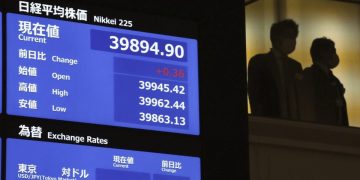Strong wage growth is normally a good thing for workers and a boon for the economy.
Now? Not so much.
Average pay increases are nearing the highest level in decades, fueling inflation, the Federal Reserve says. And that could force Fed officials to raise interest rates even more next year, which risks pushing the U.S. into a mild recession.
Economists say moderating wage growth is shaping up as key to avoiding a downturn.
But it may not be so simple.
What is the average wage increase in 2022?
Average annual wage gains dipped to 5.2% in the third quarter from 5.7% early this year, according to the Labor Department’s Employment Cost Index. But that’s still well above the average of 3.3% before the pandemic and about 2% in the decade before the health crisis.

Robust pay increases are usually a good thing. Since the COVID crisis, though, they haven’t nearly kept pace with inflation, meaning consumers are losing purchasing power.
But the spike in wage growth is contributing to inflation because employers with high labor costs typically raise prices to maintain profits.
Recall alert:Target recalling 204,000 weighted blankets after two children reportedly die of asphyxiation
Relief on used car prices?:Used-car prices expected to drop up to 20% in 2023 as inventory stabilizes
Meanwhile, the Federal Reserve has sharply raised interest rates to lower annual inflation that hit 9.1% in June before coming down to a still elevated 7.1% in December.
The Fed has hiked its key rate…



























































